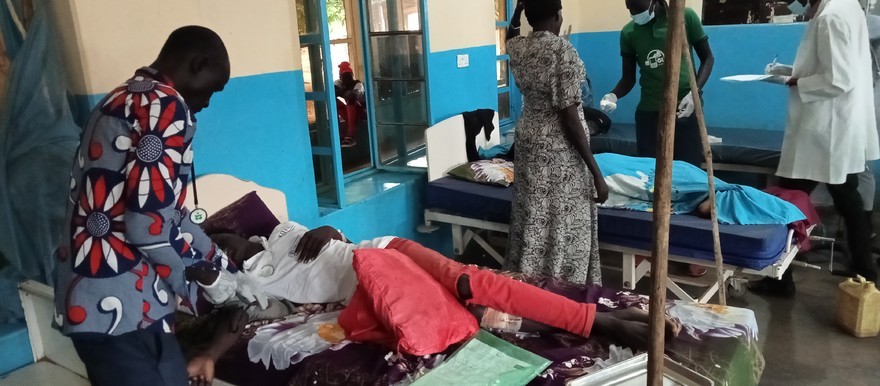A medical officer in Kajo-Keji County of Central Equatoria State has said the Kajo-Keji hospital is dilapidated, in need of urgent repairs, lacks essential drugs, and cannot meet the health needs of Internally Displaced Persons and thousands of returnees.
Dr. Segowat Savior Cleva, the county hospital’s medical director, told Radio Tamazuj Wednesday that the health facility cannot carry out any surgeries and admissions because the maternity wards, medical admission wards, operation theatre, and all medical equipment were destroyed during years of conflict which engulfed the area in 2016.
“Even antibiotics are not there and the available medicine we have in the hospital is only anti-malarial. Most of the essential drugs are not available and you know a hospital is a secondary facility, it has a lot of work compared to a primary health care center,” Dr. Segowat explained. “Currently, we don’t do operations because we need renovation in the theatre and all the equipment needs to be bought because everything got destroyed. We don’t even have a theatre operating table. These are the real challenges on the ground.”
He said the hospital depends on the county health department for medical assistance, a quota meant for remote primary health care centers.
Julius Gonda, a patient suffering from malaria, said the hospital has no medicines and that sick people resort to herbal medicine from tree roots, barks, and other plants to treat their ailments.
“In Kajo-Keji County, access to medical services is a major challenge in the area. Many of us are relying on tree leaves and roots for treatment and my request to the government is to improve security and protection so that health partners can come to help the people of Kajo-Keji County,” Gonda said.
He said that although community members help in cleaning and washing the health facility, the lack of medicines and poor infrastructure remains a huge challenge.
Dr. Segowat said the hospital records about 100 patients per day but cannot treat all of them and refers many to Juba and Moyo in Uganda. He appealed to the government and other partners to intervene.
“I am appealing to the health partners that Kajo-Keji hospital needs support because right now we are sending patients to Juba and Moyo (Uganda). We should fix the hospital and all these medical challenges will be addressed in Kajo-Keji and I also believe that once there is a hospital in Kajo-Keji, it will attract peace and the return of many refugees still in Uganda,” Dr. Segowat said.
He also said the facility is understaffed which presents another challenge.
Earlier this year, Kenyi Eresto, the commissioner of Kajo-Keji County, told Radio Tamazuj that over 40,000 returnees had re-settled in the county but lacked basic services, including health care.




